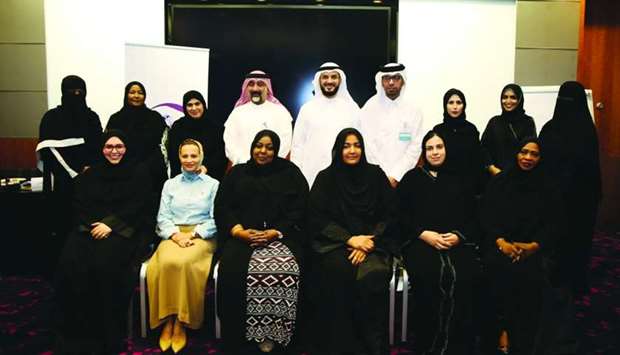The Orphans Care Centre (Dreama) has held a training workshop for specialists, service and care providers, and foster families under the title 'Art of dealing with orphans and Shariah provisions for orphans'.
This was part of the 'Family Stability Project' developed by the centre to help foster families inform orphaned children of their social status through psychological and educational methods, Dreama said in a statement.
The workshop was delivered by Nasser Hamad al-Khalidi, psychological and educational counsellor from Kuwait, with the aim of educating service providers as well as training foster families and support professionals on orphaned children's needs and how to inform them of their social status before and after fostering through gradual psychological methods — from childhood until youth, the statement explained.
The five-day event tackled the methodology of dealing with orphaned children from several angles, including the art of dealing with orphans and their needs, and the psychological, emotional and behavioural effect on orphans.
The workshop discussed the concept of alternative family, instructions for the foster family, the basic objective of the foster family, the concept of shelter and the role of the shelter institution.
The event also addressed the importance of understanding the childhood stage and children's psychological and social development needs, the skills needed to deal with children, how to inform them of their social status and help them accept themselves, as well as the factors that contribute to the development of self-esteem.
Further, the methods of granting an orphaned child psychological and social security were stressed during the workshop, while the characteristics of the foster mother were also discussed.
Maryam bint Ali bin Nasser al-Misnad, executive director of Dreama, highlighted the importance of the workshop in the training of foster families and specialists to support the needs of orphaned children and preparing them to adapt to their social status at an early age through scientific methods.
Appropriate psychological and social conditions are provided so that the orphan does not feel being different from others or suffer from an inferiority complex.
This is done in order to effectively deal with any psychological shock that a child may experience during the process of informing him/her of his/her status during adolescence, the statement explains.
Dreama said it held the workshop as part of its efforts to upgrade the services offered to orphaned children and train foster families and specialists to support and develop their needs in order to achieve the highest standards of service provided to such children.
A foster mother attending the event expressed her pleasure at participating in the workshop and also highlighted the active role of Dreama in supporting this segment of the community through training workshops and other initiatives.
All these measures eventually provide the suitable social environment for bringing up children, it was observed.
The workshop was delivered by Nasser Hamad al-Khalidi, psychological and educational counsellor from Kuwait, with the aim of educating service providers as well as training foster families and support professionals on orphaned children's needs and how to inform them of their social status before and after fostering through gradual psychological methods — from childhood until youth, the statement explained.
The five-day event tackled the methodology of dealing with orphaned children from several angles, including the art of dealing with orphans and their needs, and the psychological, emotional and behavioural effect on orphans.
The workshop discussed the concept of alternative family, instructions for the foster family, the basic objective of the foster family, the concept of shelter and the role of the shelter institution.
The event also addressed the importance of understanding the childhood stage and children's psychological and social development needs, the skills needed to deal with children, how to inform them of their social status and help them accept themselves, as well as the factors that contribute to the development of self-esteem.
Further, the methods of granting an orphaned child psychological and social security were stressed during the workshop, while the characteristics of the foster mother were also discussed.
Maryam bint Ali bin Nasser al-Misnad, executive director of Dreama, highlighted the importance of the workshop in the training of foster families and specialists to support the needs of orphaned children and preparing them to adapt to their social status at an early age through scientific methods.
Appropriate psychological and social conditions are provided so that the orphan does not feel being different from others or suffer from an inferiority complex.
This is done in order to effectively deal with any psychological shock that a child may experience during the process of informing him/her of his/her status during adolescence, the statement explains.
Dreama said it held the workshop as part of its efforts to upgrade the services offered to orphaned children and train foster families and specialists to support and develop their needs in order to achieve the highest standards of service provided to such children.
A foster mother attending the event expressed her pleasure at participating in the workshop and also highlighted the active role of Dreama in supporting this segment of the community through training workshops and other initiatives.
All these measures eventually provide the suitable social environment for bringing up children, it was observed.

